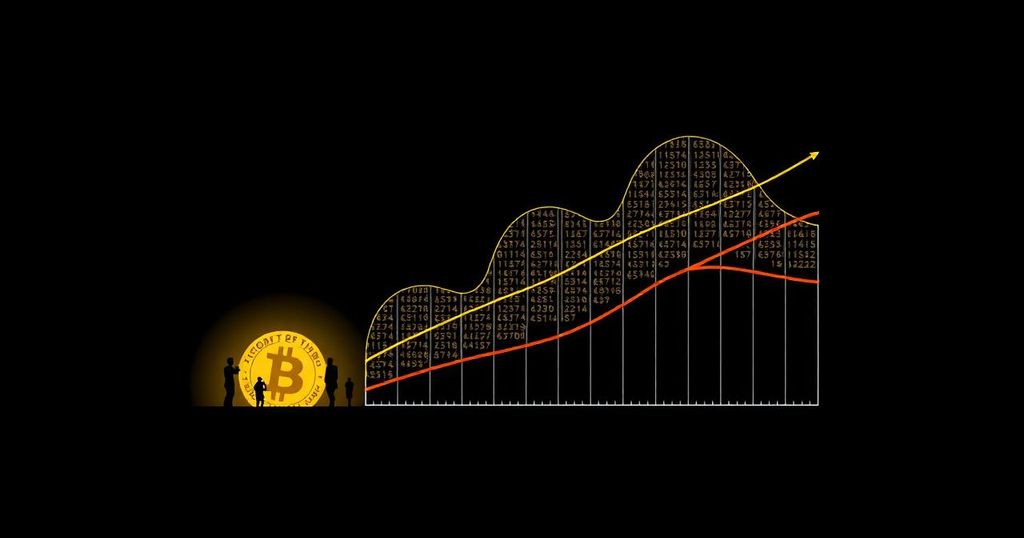Exploring Unlikely Scenarios for Bitcoin’s Devaluation to Zero
Summary
This article discusses the unlikely scenarios that could drive Bitcoin’s price to zero, emphasizing the resilience of its established community and infrastructure. Experts argue that while extreme circumstances, such as a total market collapse or severe regulatory actions, could pose risks, Bitcoin’s diverse utility and significant market presence make a total devaluation improbable. The article highlights various perspectives from market analysts and investment researchers regarding Bitcoin’s future viability, noting that it is unlikely to ever reach a value of zero due to its robust ecosystem.
Bitcoin has navigated significant fluctuations since its inception in 2009, leading skeptics to frequently predict its fall to a value of zero, especially during market downturns. Notable figures such as Warren Buffett and Peter Schiff prominently voice their criticisms of Bitcoin. Nevertheless, achieving a total devaluation to zero is considered improbable by industry experts. Jonathan Isaac, the Chief Marketing Officer at CoinMarketCap, expressed skepticism regarding the likelihood of Bitcoin hitting zero, attributing such a scenario to an extraordinary event. Isaac suggested that if every Bitcoin holder were to simultaneously divest, the price might plummet; however, the diverse and dedicated Bitcoin community makes this scenario difficult to envision. Furthermore, Bitcoin’s multifaceted utility—as a store of value, a payment method, and a hedge against traditional finance—contributes to its enduring value. The Bitcoin ecosystem, comprising businesses, projects, miners, and exchanges, is robust, and it is improbable for this infrastructure to dissipate swiftly. He further noted that extreme regulatory measures or a worldwide prohibition could theoretically decimate Bitcoin’s value but remained skeptical about such coordinated actions happening, especially since many governments are engaging positively with the forex market. Isaac also discussed less foreseeable events such as unresolvable vulnerabilities in Bitcoin’s programming or advancements in quantum computing as potential threats, labeling them as extreme “black swan” occurrences. Others, like investment researcher Lyn Alden, believe that, even in the event of a critical flaw, Bitcoin would likely continue through a surviving fork, signifying that a complete absence of functioning blockchain technology is highly improbable. Market analyst Tony Sycamore acknowledged that the chances of Bitcoin becoming worthless are slim but not unreachable, likening such an occurrence to a severe global crisis. Meanwhile, Greg Magadini from Amberdata remarked that rather than falling to zero, Bitcoin could transform into a liability under a repressive regime. He referred to historical precedents, such as FDR’s Executive Order 6102 concerning gold, emphasizing that, although Bitcoin holdings may become regulated or restricted, their value would likely not diminish entirely. Despite various predictions of Bitcoin’s demise, experts continue to affirm the cryptocurrency’s resilience and strategic importance in the evolving financial landscape.
Bitcoin, launched in 2009, has become a significant subject of discussion among investors and economic theorists alike. The volatility inherent in cryptocurrency markets has triggered skepticism and predictions of total devaluation, attracting criticism from well-known figures in finance. Understanding the mechanisms behind Bitcoin’s continuous value maintenance is essential as it relates not only to market dynamics but also to technological advancements and potential regulatory challenges. By analyzing expert opinions and historical contexts, we can explore the factors that contribute to Bitcoin’s potential longevity or downfall in extreme scenarios.
In conclusion, while certain catastrophic events could theoretically lead to Bitcoin’s price reaching zero, experts deem such outcomes as highly unlikely. The cryptocurrency’s established infrastructure, diverse applications, and the passionate community surrounding it create a formidable defense against total collapse. Furthermore, historical insights into government regulation reveal that Bitcoin may merely transition into a constrained asset rather than losing all value. Ultimately, Bitcoin’s resilience remains strong as it continues to adapt within the global financial ecosystem.
Original Source: cointelegraph.com








Post Comment